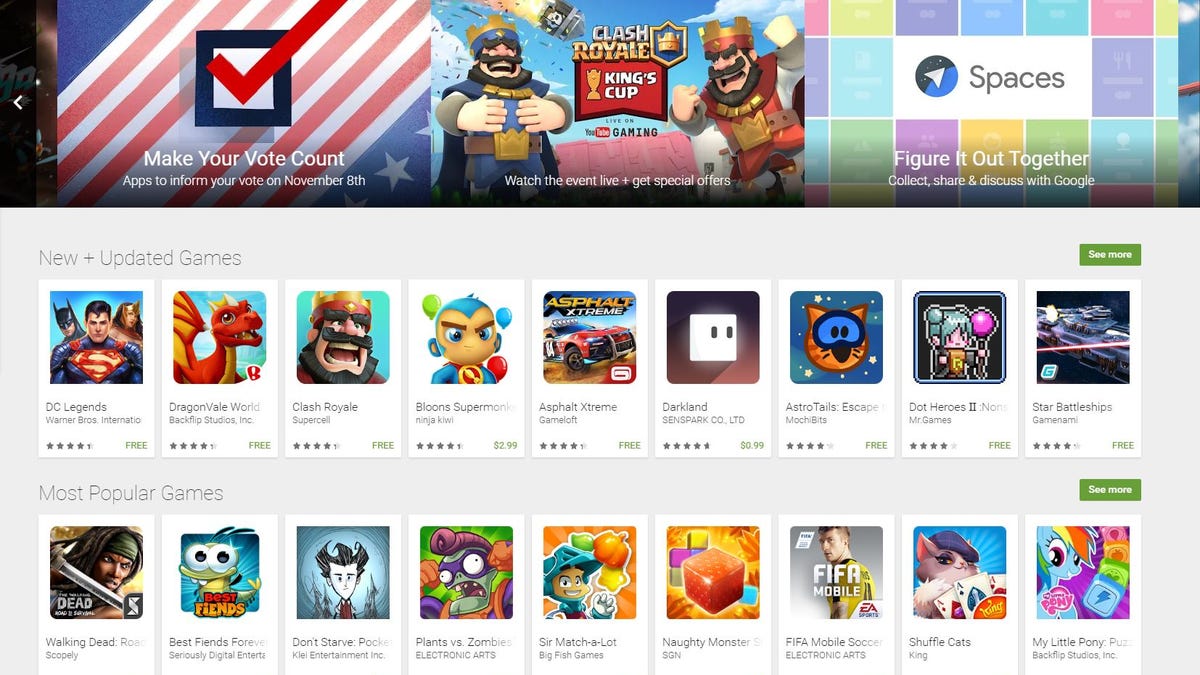Google uses AI to help you find that obscure Android app
A neural network -- and a human touch -- help Google figure out which apps belong in which categories.

The Google Play Store
Google has begun using artificial intelligence to categorize Android apps on its Google Play store, the company said Tuesday.
Using technology called a neural network, which is based loosely on the way human brains work, Google processes app names and descriptions to try to figure out which ones to show in search results. It's not hard to show the Snapchat app when people search for it by name, but the AI technology is designed to do a better job when people just type in categories like "selfie," Google AI researchers said in a blog post Tuesday.
But the technology still needed a human touch. Google had to train its system by letting people assess how well the categorization worked and thus steer it toward better results.
With hundreds of thousands of apps to pick from, discovery is a major challenge for app stores. When you search or browse for apps, companies like Google and Apple have to balance new apps with popular standbys, weed out malicious apps, and curtail developer efforts to get their own apps to show up high in search results.

